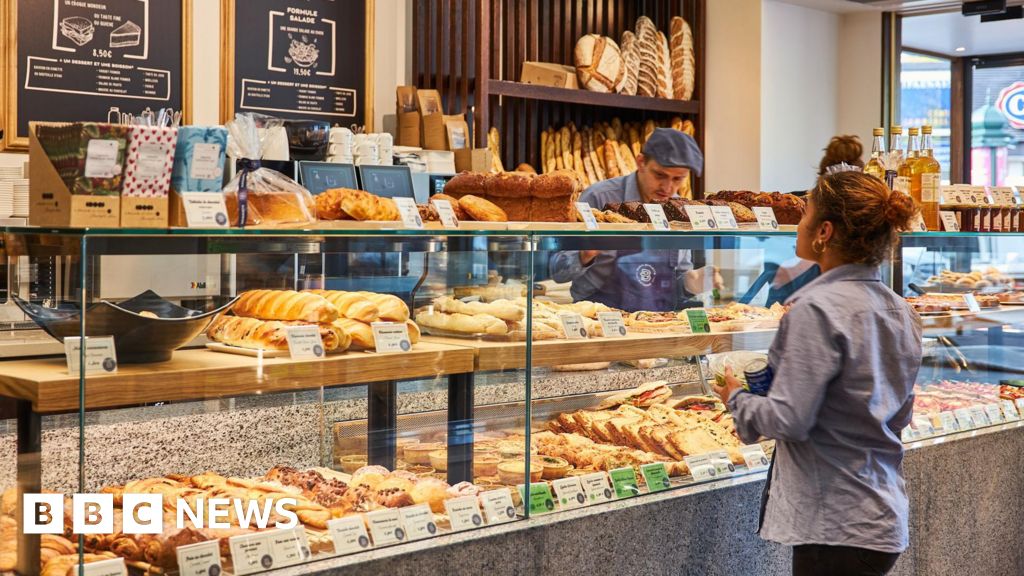Warning Issued Over Unsafe Dubai Chocolate Imports: A Sweet Treat Turned Risky

Shoppers eager to indulge in Dubai's viral chocolate are being cautioned about potentially dangerous side effects, as officials issued a stark warning today regarding the risks associated with some imported products. This delectable treat, which skyrocketed to fame on social media platforms late last year, features a delightful combination of pistachio and crispy pastry, commonly referred to as 'angel hair'.
Created by Sarah Hamouda, a British-Egyptian chocolatier based in Dubai, the confection was inspired by her cravings during pregnancy. The chocolate gained immediate popularity, reminiscent of Willy Wonka's golden ticket, leading chocolate enthusiasts worldwide to clamour for a taste of this unique creation. However, the sweet indulgence has taken a darker turn, as reports indicate that some manufacturers are producing cheap and hazardous imitations that may contain harmful ingredients.
The UK's Food Standards Agency (FSA) has brought attention to the situation, stating that certain Dubai chocolate bars imported into the UK have been found to contain dangerous additives and contaminants. These alarming ingredients include illegal food dyes, toxic substances produced by moulds, and even chemical compounds that are believed to be carcinogenic.
Professor Robin May, the Chief Scientific Advisor to the FSA, expressed concern, stating, 'The vast majority of food in the UK is safe, but some imported Dubai-style chocolate products do not meet our standards and could pose a significant food safety risk, particularly for consumers with allergies.'
The chocolate bar's popularity surged after Maria Vehera shared a video that captivated viewers, showcasing her delight as she sank her teeth into the sweet confection, which oozes with a gooey green pistachio filling. However, as excitement builds over the product, availability has become scarce, leading to long lines of eager customers waiting for a chance to purchase one of the limited bars available.
In response to the growing concerns, officials from the FSA have urged consumers to be cautious when purchasing Dubai-style chocolates. They recommend sticking to reputable retailers—such as those regularly frequented for grocery shopping—where products are more likely manufactured to meet UK food safety standards.
'It can be challenging for consumers to differentiate between products made for the UK and those that are not,' Professor May continued. 'For those with food allergies or intolerances, it is wise to avoid purchasing the product unless you are certain it is intended for sale in the UK.'
Furthermore, individuals who encounter chocolates that raise concerns are encouraged to report these products to their local authorities. The FSA is actively collaborating with local agencies to swiftly remove any unsafe items from store shelves.
In light of the growing issue, the FSA is undertaking continual surveys and sampling of these products to assess the situation's scope. They also provided guidelines on what consumers should look for when determining if a product meets UK standards. By law, food items produced for sale in the UK must have labels in English that include essential information such as the food's name, a complete list of ingredients—with allergens clearly highlighted—and the product's weight in grams.
Moreover, a clear best before or use by date must be displayed alongside the name and address of the UK or EU business responsible for the product. If the food is sourced from outside the UK or EU, the label must contain the name and address of the importer.
Statistics reveal that approximately 10 individuals in the UK die each year due to allergic reactions to food, while around 5,000 people require hospitalization for severe reactions. These allergies can manifest as a range of symptoms, with the most critical being anaphylaxis, a severe and potentially life-threatening condition characterized by dangerous inflammation of the airways. This can lead to significant breathing difficulties and may even trigger a cardiac emergency due to inadequate oxygen supply.
Children are particularly vulnerable to severe allergic reactions, as their smaller body size means that even minute amounts of allergens can provoke significant responses. Since allergies are often identified during childhood, many parents may not have immediate access to emergency injections necessary for treating an allergic reaction, making awareness of potentially unsafe food products even more crucial.



























